INTERVIEW | Electoral watchdog Bersih played a major role in bringing the fight for clean electoral politics into the mainstream with its peaceful street protests and helped transform the country’s dominant single-party system.
While former leaders Ambiga Sreenevasan and Maria Chin Abdullah were its most public faces, the story of Thomas Fann is also intertwined with that of Bersih’s journey.
In an exclusive interview with Malaysiakini, Fann recalled how on Nov 19, 2016, he was the overall commander of the Bersih 5.0 rally at a time when Maria had been arrested a day before.
It left the movement without clear leadership and Fann stepped up, guiding operations via walkie-talkie from the 22nd floor of a hotel in the KL city centre.
The demonstrators’ original destination was Dataran Merdeka but the police had blocked the route. After a call informing him of the situation on the ground, he decided to use a diversionary tactic to break through the blockade.
Fann directed demonstrators near Masjid Negara to move towards the police headquarters at Bukit Aman, while several other teams headed towards the city centre and KLCC.

The triumphant event was the last major gathering by Bersih in the run-up to the historic GE14 which saw the BN government defeated for the first time.
Pastoral beginnings
Most associate him with Bersih but before dedicating himself to civil society, Fann was a Christian pastor.
Johor Bahru native Fann, 62, told Malaysiakini he studied business in the UK but unfortunately, his father passed away during his studies.
At the age of 22, as the eldest son, he had to abandon his studies and return to Malaysia to take over the family’s public-listed plantation company.
After managing the business for three years, Fann resigned to pursue a Bachelor of Theology degree and became a pastor.
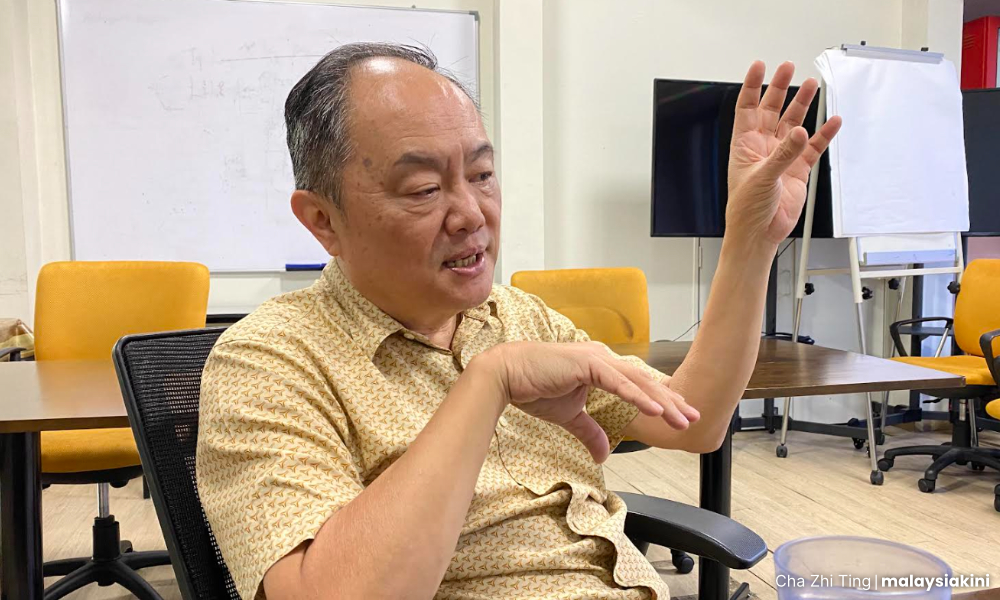
“I felt that (the family business) was not my true calling. I always wanted to do more than just something for myself or my family. I wanted to do something for society.”
Fann revealed that due to his own beliefs, he chose to become a pastor to serve the community and assist those in poverty.
“As a pastor, I could serve the community and the poor. It was an extension of my faith to be trained theologically.”
Turning point
After becoming a pastor, Fann was invited in 2000 to the Philippines to provide training for local pastors, but the extreme poverty there had a profound impact on him and led him to start reflecting on the causes behind such conditions.
“I saw poverty in its truest form. People and young children roaming the streets with no identity papers, no rights.
“And in some cases, don’t even really have a name or family name and eating off a garbage can.
“So it was then that I started to ask a deeper question. Why? How did human beings become this way?
“And I was so grief-stricken by what I saw and asked what can I do about it?
“So, it was because of that, over the next few years, I began to get interested in politics.”
He believed the origin of these issues was political and he was more interested in the root cause of a problem rather than treating the symptoms on the surface.
“I could have gotten more involved with feeding the poor, raising money, and helping the poor on the streets. But I was more interested in the question of why did they end up on the street. Why did they become poor?
“And, because of that questioning, I realised the importance of politics. You know, if you really want to solve the root issue in this country, you cannot help but be interested in politics,” said Fann, pointing to Mahatma Gandhi, Nelson Mandela, and Martin Luther King Jr as his inspirations.
GE12 tsunami
Fann said that the political tsunami of 2008, when BN lost its two-thirds majority and five states just months after the first Bersih rally, really gave him hope that things could turn around.
Consequently, he, along with a group of Johoreans, founded the Johor People Action Group (JPAG) in an attempt to alter the prevailing situation.
He revealed that within the first two years of JPAG’s establishment, they helped to register about 25,000 new voters.
“So in the process of registering, I also saw first-hand the electoral injustice. Many people found it so challenging just to become a voter.
“And then I also understood about how our electoral boundaries were delineated in such a way that it disadvantaged a certain group of citizens. And I began to give talks about electoral reform.”
In a self-deprecating manner, Fann mentioned during the interview that, unlike those who were involved in advocating for human rights movements in the 1980s and 90s, he was a “late bloomer” on the social activism path.
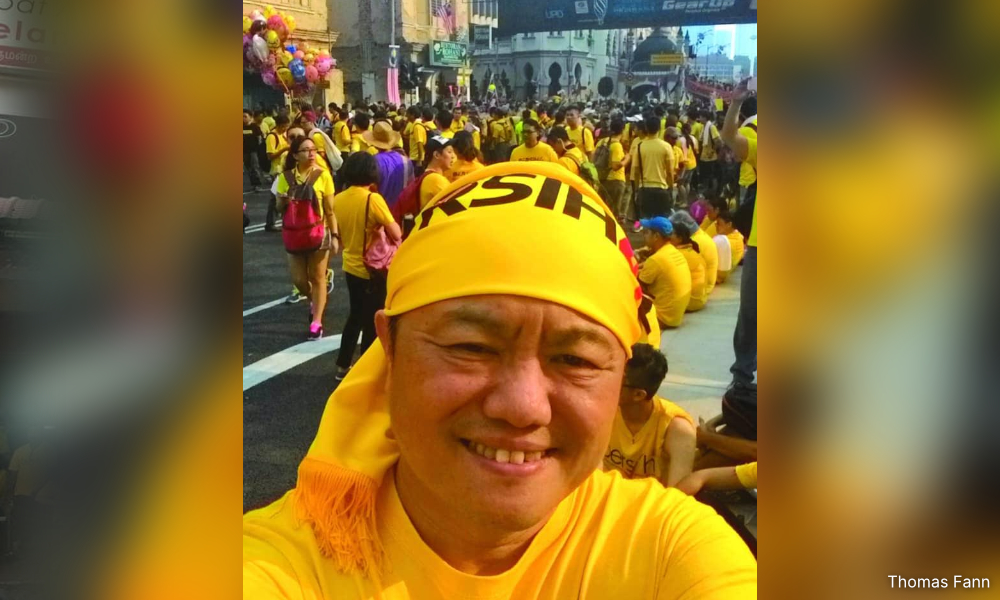
“And Bersih 2.0 was my first time joining a protest ever. So I’m not your seasoned, long-term human rights activist from the 1990s or 80s.
“I would say that my birth as an activist actually was on the streets of Pudu in Bersih 2.0.
“You know, when I saw the tear gas, when I saw the way, I think, the authorities represented by the police, man-handled ordinary citizens, the pakcik and the makcik, I saw how rough they were, how rude they were. It really riled me up.
“And I decided then on the streets of Pudu, that I want to make a difference.”
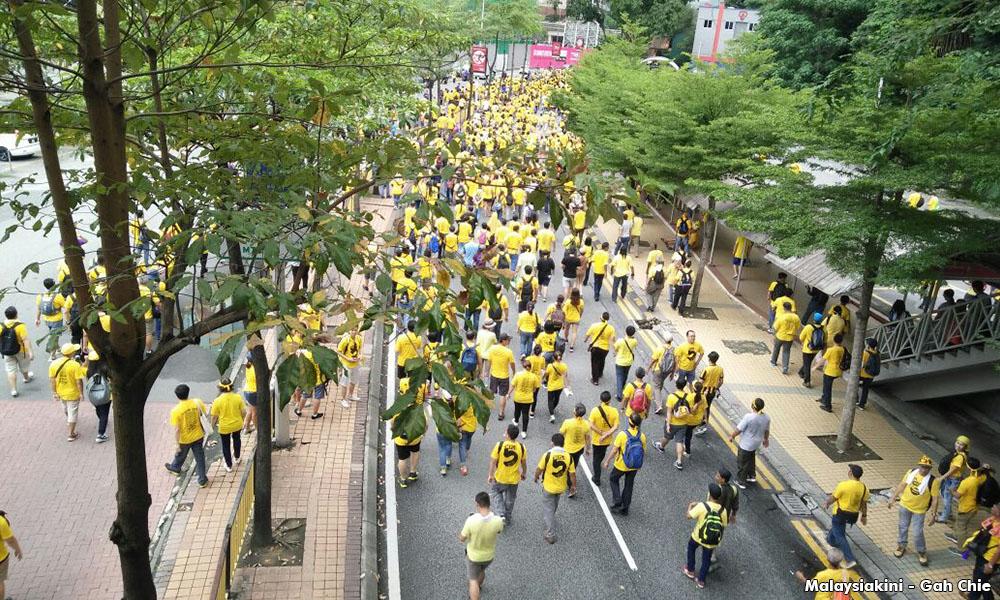
Subsequently, he chose to join Bersih, deciding that his strengths suited civil society more than politics.
“I am a leader and a very good organiser. I am very clear and I can organise people and motivate people well.
“But I decided then that the most undeveloped area was civil society. And Bersih was at that time beginning to mobilise the public through civil society.”
In 2011, during the Bersih 2.0 rally, Fann participated in Bersih activities for the first time. During the Bersih 3.0 rally in 2012, he organised the Bersih rally in Johor. In the Bersih 4 and 5 rallies, he became the commander of the rallies.
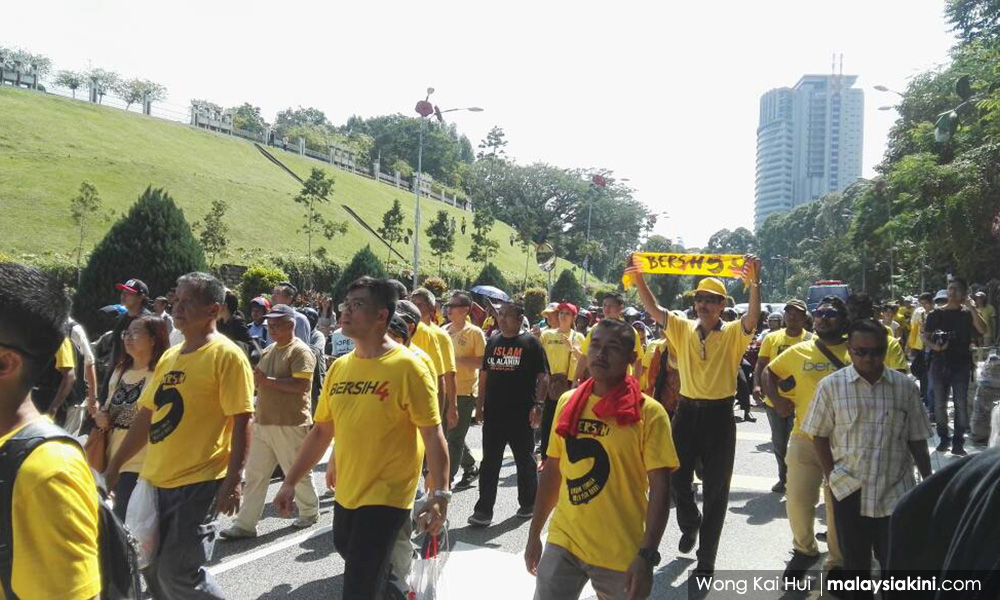
Hurt by rejection
Subsequently, in 2018, he became the chairperson of Bersih. And then this year, he won uncontested, but shockingly resigned after fewer than 10 days.
At the time, Fann explained that based on the election results, the vision and direction he set for Bersih as a people’s institution were rejected.
During the interview, the former Bersih chairperson candidly admitted that the rejection of the direction he set did indeed hurt him.
“I think, to be honest, I was hurt. I mean we worked so hard, the last five years. My team and I even during Covid, we never stopped working and trying to do what’s good for the country and for Bersih.
“And to be rejected, it did hurt, but I quickly told myself it’s more important that Bersih continues and more important for the movement, that we continue supporting it.”
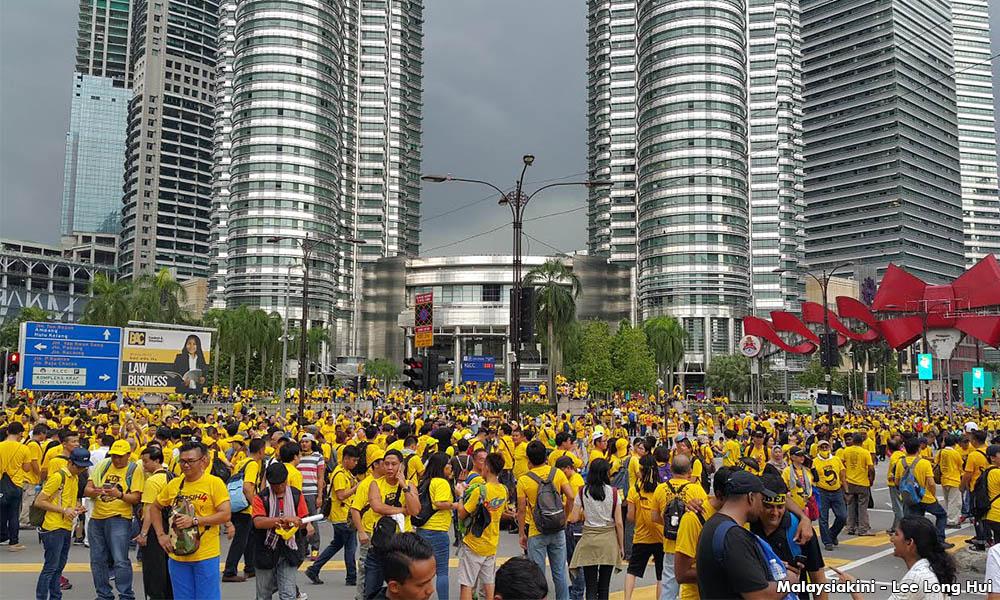
He believed that the reason his proposed direction was rejected was that he didn’t have the opportunity to explain it to supporters.
He claimed that if he had the chance to engage in a debate with his opponents, similar to the situations of former Abim president Muhammad Faisal Abdul Aziz and activist P Gopalan-Krishnan during their candidacy for the Bersih chairperson post, he could have convinced others that the direction he set was the correct one.
“But because the strategy taken by the other side was not to challenge me. Therefore my hands were tied. I couldn’t defend myself,” he claimed.
Furthermore, he believes that Bersih supporters were still immersed in nostalgic sentiments for holding protests and this, too, contributed to the rejection of his proposed direction.
“And they are quite nostalgic about the days of protest, so am I. I am a product of protests but I think the seasons have changed, you know. And it’s about recognising the season and taking the right approach to face the challenges.
“I think they didn’t understand because they think that we are still a social movement. No, Bersih is no longer a social movement.”
Protest pressure during Sheraton Move
Fann also revealed that amid the Sheraton Move and the declaration of a state of emergency by ex-premier Muhyiddin Yassin, many believed Bersih should take to the streets again in protest.
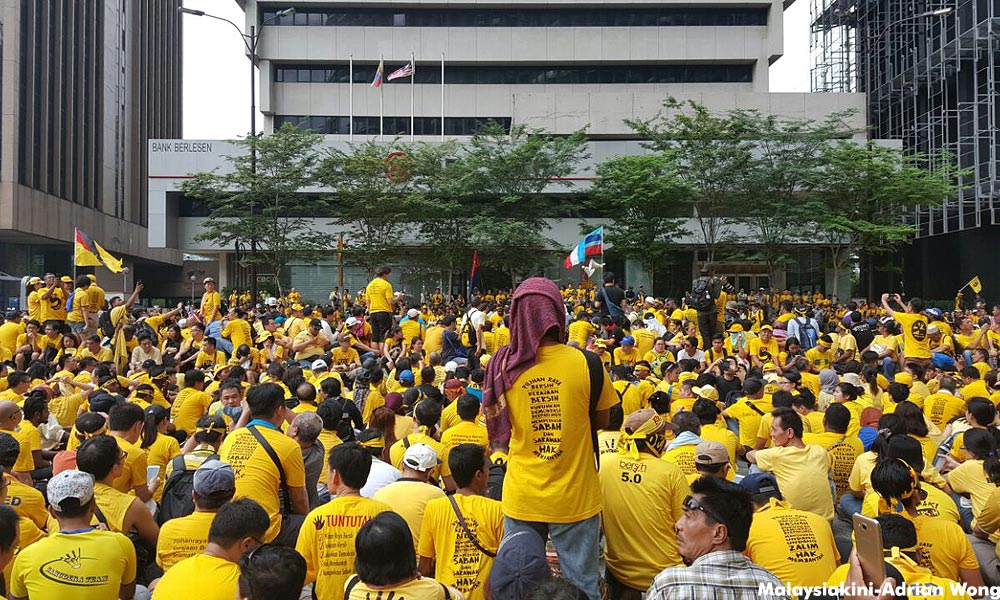
“A lot of pressure was on me to call for Bersih 6. The endorsing NGOs, civil society, many were demanding it.
“But I knew that it was something that I had to consider carefully because the rationale for bringing down the Pakatan Harapan government was the formation of a Malay unity government. It was the coming together of all the Malay parties.”
He believed that if rallies were mobilised, it would ultimately escalate into a racial issue.
He also claimed that Muhyiddin’s declaration of a state of emergency during the Covid-19 pandemic was also just a way to retain power.
He pointed out that although they chose not to take to the streets, Bersih proposed an alternative strategy, which was the confidence and supply agreement (CSA) between the government and opposition parties.
He mentioned that even though this suggestion was not adopted during Muhyiddin’s leadership, a bipartisan memorandum of understanding (MOU) on political transformation and stability was signed between the government led by Ismail Sabri Yaakob and the opposition during his tenure.

“I still say holding protests is never off the table because it is part of the pillars of democracy, that citizens are given the right to hold peaceful protests.
“A good protest brings together all segments of society, across ethnic, religious, and socio-economic lines. Ultimately, what we want to see are real reforms. Institutional and electoral reforms.
“That is and has always been the goal of Bersih. Not regime change.” - Mkini



No comments:
Post a Comment
Note: Only a member of this blog may post a comment.